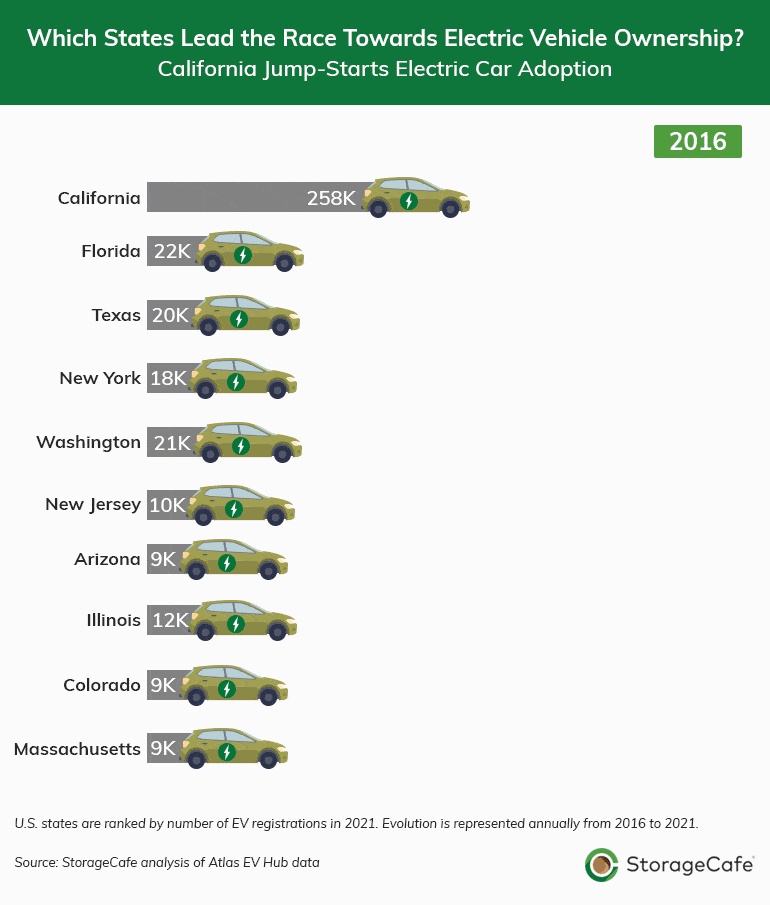There’s little denying that electric cars are the future of transportation — according to Kelly Blue Book, electric vehicle sales amounted to 800,000 transactions in 2022, a 65% increase from 2021.
There are many policies in place to encourage consumers to make the switch to electric vehicles, with numerous states adopting zero-emission vehicle programs to incentivize production among auto manufacturers and phase out production of non-electric cars. But which part of the country is actually the most prepared to accommodate electric-only transportation?

Via StorageCafe
A new report from StorageCafe suggests that Seattle is most friendly to electric car owners. A majority of the other leading cities are also on the West Coast, including San Francisco; San Jose, California; Portland, Oregon; San Diego; Sacramento, California; Los Angeles; and Riverside-San Bernardino, California.
What makes the Puget Sound area so well-suited for an electric car revolution? Seattle has a highway system that’s well-equipped for electric vehicles, and has the largest number of electric vehicle charging stations in apartment buildings, at over 7% (meaning the occupants of approximately 490,000 apartments have access).
An “eGallon” (the cost of charging an electric vehicle equivalent to a gallon of gasoline) in Seattle is much cheaper than gas at under a dollar, and the city also has an ample number of storage spaces large enough to fit secondary non-electric vehicles. Electric vehicle insurance is also considerably cheaper in Seattle than in other EV-friendly cities.
In 2021, there were over 47,000 electric vehicles on the streets of Seattle. While other metros like Los Angeles have larger quantities of EVs on the road, Seattle has a larger proportion of electric cars per resident (about three per 100 households). Seattle also has 0.6 charging stations per 1,000 households.
When it comes to further improving public charging access, associate professor of civil and environmental engineering at the University of Washington Don MacKenzie said there are still strides to be made.
“Those with the ability to install a home-charging station can do most of their charging at home and only rarely need to use public-charging stations. Those who live in apartments with shared parking or who park on the street have a tougher time arranging for overnight charging,” he shared with StorageCafe. “Cities like Seattle are exploring creative solutions to support curbside charging, and there are many efforts underway to figure out the best ways to get charging into shared parking garages.”
Seattle has been making strides towards greener transportation for many years: over 73% of public transit in Seattle uses clean fuel, while more than half of the city’s electricity comes from renewable sources. However, MacKenzie says he’s doubtful a full switch to electric-only transportation could be possible without further government intervention: “I’ve yet to see a convincing answer of when we may hit the tipping point where government investment is no longer necessary.”
